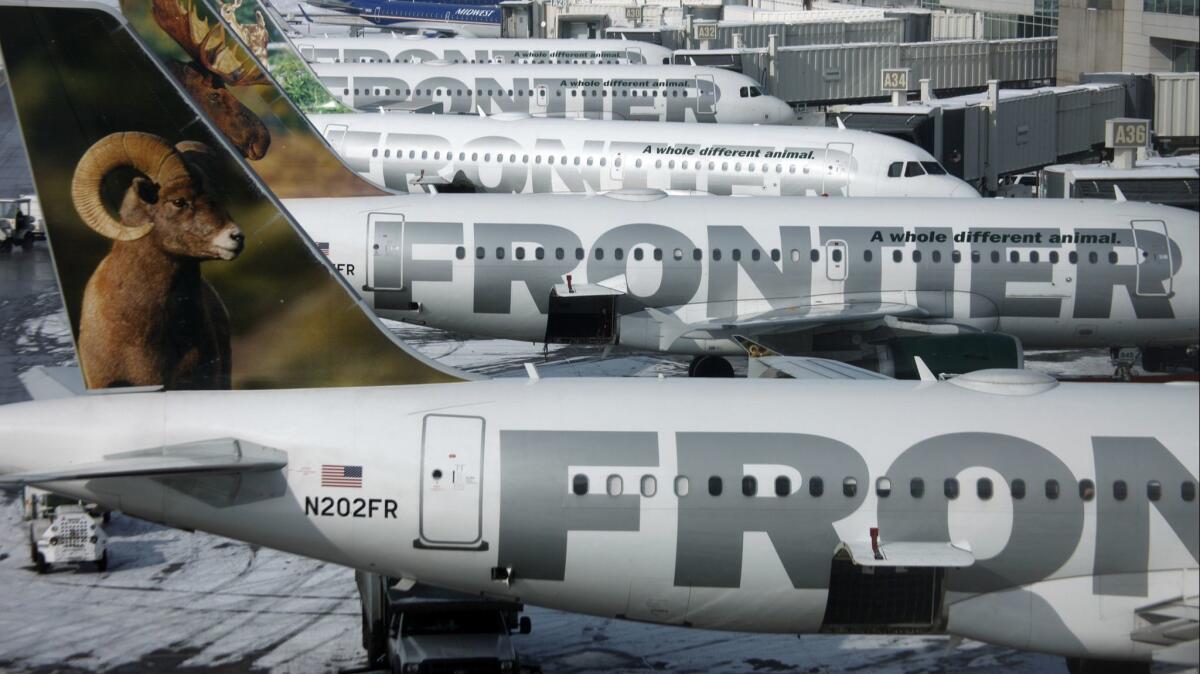Frontier Airlines lets flight attendants keep their tips. The union opposes tipping

- Share via
To generate extra revenue, low-cost airlines have experimented with several money-making ideas, such as charging to print boarding passes and promoting credit card memberships during the flights.
Frontier Airlines is trying something new to generate extra money for the carrier’s flight attendants: tips they don’t have to share.
At the Denver-based, low-cost carrier, passengers who order food and drinks from a digital tablet on the plane have the option of giving the flight attendant a tip.
Since the digital tablets were introduced three years ago, flight attendants have had to share the tips from the sales with their fellow flight attendants on the plane. But as of Jan. 1, flight attendants can keep the tips they make from those sales.
The change was made at the request of flight attendants, Frontier spokesman Jonathan Freed said.
But the Assn. of Flight Attendants International, representing 50,000 flight attendants at 20 airlines, including Frontier, opposes tipping, saying flight attendants are responsible for safety and security on the plane and their service shouldn’t be based on how much a passenger tips them.
The group also accused Frontier of using the potential tip revenue to undermine contract negotiations with the union.
“Regardless of the tip issue, Frontier Airlines needs to step up and pay aviation’s first responders a wage that recognizes their critical safety role onboard,” union President Sara Nelson said.
Freed pushed back, saying, “We view tips as additional compensation over and above flight attendants’ contractual wages.”
Industry experts say no other U.S. carrier gives passengers the ability to tip flight attendants, and they don’t expect other airlines to follow Frontier’s lead.
To read more about the travel and tourism industries, follow @hugomartin on Twitter.
More to Read
Inside the business of entertainment
The Wide Shot brings you news, analysis and insights on everything from streaming wars to production — and what it all means for the future.
You may occasionally receive promotional content from the Los Angeles Times.








